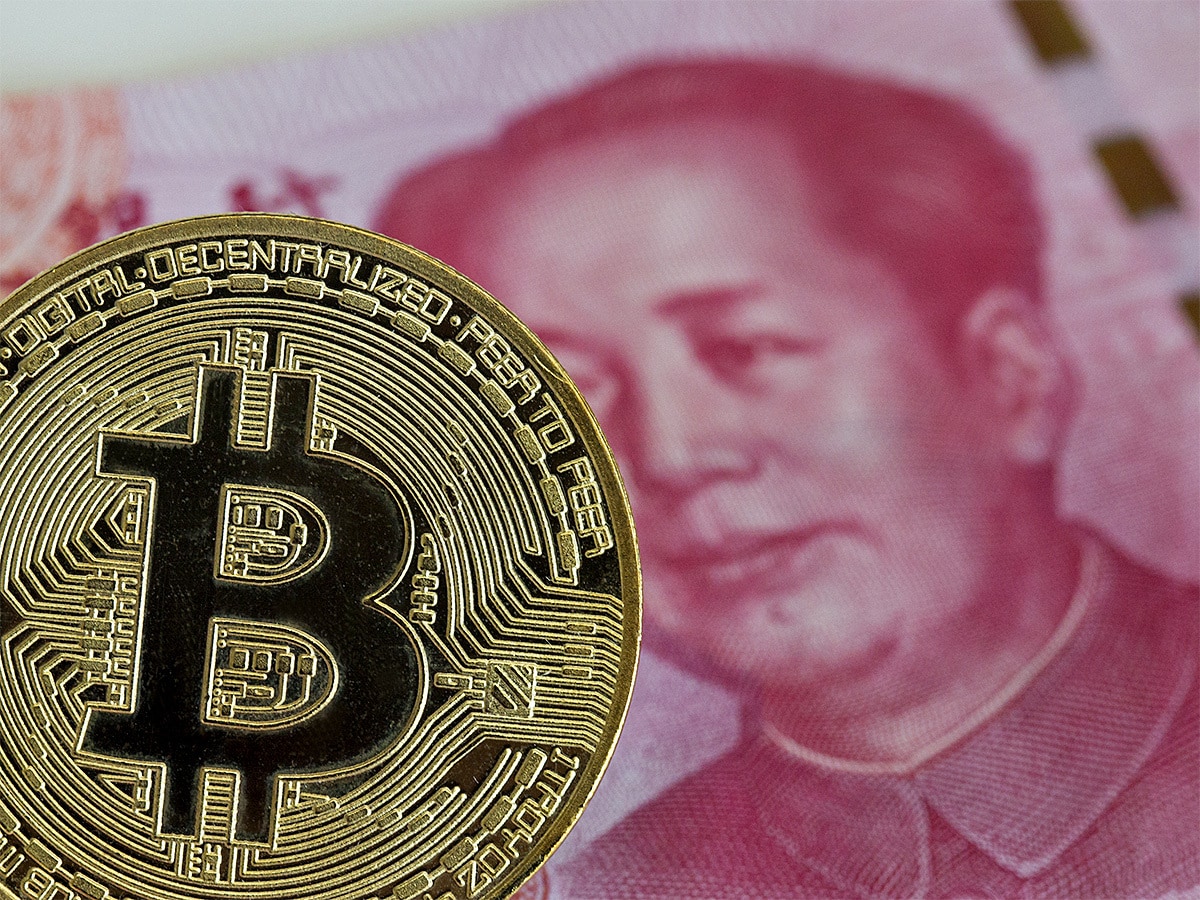On 24 September, 10 of China’s most powerful agencies, including the country’s central bank and financial, securities and foreign exchange regulators, issued two major joint declarations. They would both be outlawing cryptocurrency mining, making all cryptocurrency transactions illegal.
According to a Reuters report, The People’s Bank of China (PBOC) said cryptocurrencies must not circulate and barred overseas exchanges from providing services to China-based investors. It also banned financial institutions, payment companies and internet firms from allowing Chinese residents to trade cryptocurrencies.
The government will “resolutely clamp down on virtual currency speculation to safeguard people's properties and maintain economic, financial and social order", the PBOC said, according to the report.
Financial support and electricity supply would also be cut off for crypto mining in order to help the nation reduce carbon emissions and meet its carbon neutral targets, the country’s National Development and Reform Commission said.
China’s crypto clampdowns
This is not the first time China has taken aim at cryptocurrencies. In 2013, banks prohibited the use of digital currencies. But experts believe this ban is much broader and heavier.
“The ban is sweeping, absolute, comprehensive. It is not focused on some partial aspect,” Jonathan Padilla, a co-founder and deputy director of Stanford University’s Future of Digital Currency Initiative, told Wired.
Luisa Kinzius, a director at China-focused consultancy Sinolytics, told the same publication: “The announcement is also targeting any Chinese citizen working for crypto-related companies abroad, declaring their work as illegal and putting them at risk of being legally investigated. China is very hesitant towards pure financial speculation due to financial stability concerns—and, of course, cryptocurrency is very much driven by speculation.”
“The announcement is also targeting any Chinese citizen working for crypto-related companies abroad, declaring their work as illegal and putting them at risk of being legally investigated” - Luisa Kinzius
Following the news, the price of major cryptocurrency bitcoin dropped from $44,670 at the start of 24 September to just under $41,000 in the afternoon before closing the day at $43,000. It has continued to recover, hitting $49,900 on 4 October.
Analysts do not believe the crackdown will impact prices long-term, given the increase in companies and individuals wanting to use crypto products and services.
“China’s actions haven’t held back crypto’s rise too much in the past, so I wouldn't be surprised to see it bounce back once more,” Craig Erlam, an analyst at currency broker OANDA, said, as reported by Reuters.
“The losers in all of this are plainly the Chinese,” Christopher Bendiksen, head of research at digital asset manager CoinShares, told Reuters. “They will now lose around $6bn worth of annual mining revenue, all of which will flow to the remaining global mining regions such as Kazakhstan, Russia and the United States.”
Companies respond to the crypto trading ban
According to CoinDesk, bitcoin mining machine maker Bitmain has suspended sales to miners in China, while China-based ethereum mining pool operator SparkPool also suspended services to all users from 30 September.
According to the University of Cambridge, 47% of all crypto-mining happened in China in April 2021.
47%
of all crpto-mining in April 2021 happened in China
Shares in US miner Riot Blockchain [RIOT], however, have dropped from $27.93 at the close on 24 September to $25.25 at the close on 4 October. Marathon Digital [MARA] has fallen over the same period from $36.18 to $33.63.
Chinese cryptocurrency exchange Huobi Global has also taken action, stating that it would “gradually retire existing Mainland China user accounts” by 31 December.
“Huobi Global has always been dedicated to offering digital asset trading services and ensuring the safety of customer assets while following all applicable laws,” it said in a statement on the same day as the Chinese crackdown.
What will happen to cryptocurrencies next?
Experts believe the major bitcoin and ethereum miners based in China will move offshore alongside exchanges to avoid regulations.
“The exchanges have been pushing offshore anyways, and with the exchange business you need cloud infrastructure, you need developers, you need management to move things in the right direction, and so whether that is sitting in Taipei, San Francisco, Singapore or Shanghai, it doesn’t really matter — those businesses are very virtual,” Zennon Kapron, founder of financial consulting firm Kapronasia told VOA News. “The real impact we’ve probably seen though is in the miners, and most of those miners are in the process of shifting overseas or have already completed moving overseas.”
However, most exchanges such as Coinbase [COIN], whose shares have dropped from $231.82 on 24 September to $229.31 as of 4 October’s market close, have refrained from commenting on the situation so far.
“The real impact we’ve probably seen though is in the miners, and most of those miners are in the process of shifting overseas or have already completed moving overseas” - Zennon Kapron
Another reason for the crackdown, say experts, is that China is piloting its own digital currency and wants to ensure that there is limited competition. China is eager to be a leader in the growth of blockchain — pivotal in the growth of crypto — and the Internet of Things.
Several other nations are also looking at this option in the hopes of exercising some central bank control as crypto explodes in popularity.
But the original cryptocurrencies will not fall by the wayside, says Nigel Green, chief executive of the deVere Group. He believes bitcoin could hit $100,000 by the end of this year.
“First, the Federal Reserve – the world’s de facto central bank – has come out and said that the US – the world’s largest economy – does not intend to ban cryptocurrencies,” he wrote in City AM on 5 October, while also highlighting the sustained and growing institutional interest.
“Investors appreciate the inherent value of digital, borderless global currencies for trade and commerce purposes in increasingly digitalised economies in which businesses operate in more than one jurisdiction. This will only grow as mass global adoption moves ahead.”
Disclaimer Past performance is not a reliable indicator of future results.
CMC Markets is an execution-only service provider. The material (whether or not it states any opinions) is for general information purposes only, and does not take into account your personal circumstances or objectives. Nothing in this material is (or should be considered to be) financial, investment or other advice on which reliance should be placed. No opinion given in the material constitutes a recommendation by CMC Markets or the author that any particular investment, security, transaction or investment strategy is suitable for any specific person.
The material has not been prepared in accordance with legal requirements designed to promote the independence of investment research. Although we are not specifically prevented from dealing before providing this material, we do not seek to take advantage of the material prior to its dissemination.
CMC Markets does not endorse or offer opinion on the trading strategies used by the author. Their trading strategies do not guarantee any return and CMC Markets shall not be held responsible for any loss that you may incur, either directly or indirectly, arising from any investment based on any information contained herein.
*Tax treatment depends on individual circumstances and can change or may differ in a jurisdiction other than the UK.
Continue reading for FREE
- Includes free newsletter updates, unsubscribe anytime. Privacy policy





